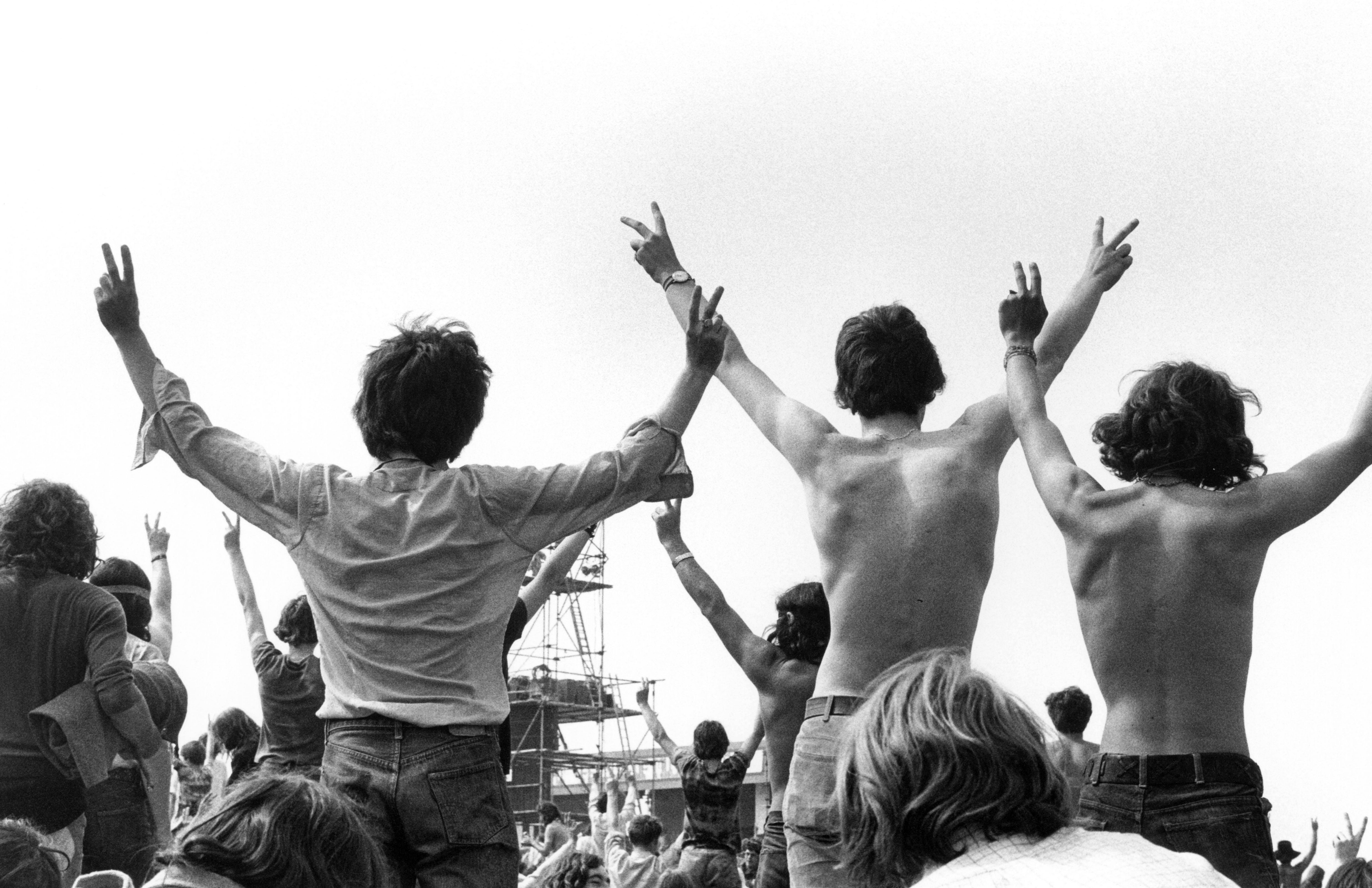Grown up in the 1970s: Pop Music and Festival Culture
21 October 2022
Find out more about how the innovations of the 60s and 70s changed how young people consumed music

Peter Francis / Museum of Youth Culture
Alongside our Grown Up in Britain exhibition, we've been looking back at how youth culture has changed over the last 100 years, and this week, we're exploring the rise of festival culture during the 1970s.
Following the mods and rockers rivalry of the 1960s, the next decade saw popular music continue to evolve and branch out into an array of new sounds and styles, each developing its own unique fashion and sense of identity.
From prog to punk, disco to heavy metal and glam rock to ska and reggae, the musical styles of the 1970s reflected a rapidly diversifying youth culture, with influences ranging from exciting new technologies to the international cultures that earlier waves of migration had introduced to the UK.
And it wasn’t just the types of music being made that shifted: the methods of distributing it were changing too. First introduced in the 1960s, compact cassettes helped democratise both the consumption and recording of music, their affordability increasing their popularity through the late 70s and 80s. Launched in 1967, BBC Radio 1 became the world’s most listened-to radio station, with its touring summer “Roadshows” pulling in huge crowds. Top of the Pops also peaked in popularity, attracting around 15 million viewers a week – a figure that increased to 19 million during the ITV strike in 1979.
The 70s also gave young people in Britain the opportunity to experience live music in new ways as festival culture began to take off. Inspired by similar events in the US, the Isle of Wight Festival set the template for the numerous music festivals to come. It was launched in 1968 with an audience of around 10,000 people, and featuring acts including Jefferson Airplane, T. Rex and Fairport Convention. In 1969, attendance was estimated at 150,000; by 1970, it had swelled to somewhere between 600,000 and 700,000, with festival-goers attracted by big name stars including Jimi Hendrix, Miles Davis, The Doors and The Who. The 1970 event was so big that the festival was subsequently banned by parliament, amid fears that the huge crowds and wild partying would negatively affect the island. It was not revived until 2002.
Also in 1968, Blackhill Enterprises launched a festival in Hyde Park, with Pink Floyd, Roy Harper and Jethro Tull taking top billing. In 1970, Worthy Farm also held its first ever music festival, with tickets priced at £1 attracting a modest audience of around 1500. The event returned as Glastonbury Fair the following year, after founder Michael Eavis teamed up with co-organiser Andrew Kerr. The rest, of course, is Glasto history.
There were plenty more to come, and music also increasingly became a vehicle for political rallying and awareness-raising. In 1972, the Gay Liberation Front organised London’s first official UK Gay Pride Rally, and what began life as a protest march gradually evolved into a carnival-style event over the following two decades.
Emerging in the mid-60s to promote cultural unity and social cohesion following a period of tense race relations, Notting Hill Carnival really began to take shape in the 70s after the legendary Duke Vin introduced Jamaican-style sound systems to the event. This use of music as a means of uniting cultures came to the fore towards the end of the decade, with Rock Against Racism Carnivals held in London and Manchester in 1978, the likes of The Clash, X-Ray Spex, Buzzcocks, Elvis Costello, Aswad and The Fall performing.
The following year saw Jerry Dammers launch the 2 Tone record label here in Coventry, as well as the release of The Specials’ debut single “Gangsters” and the formation of The Selecter. You can fnd out more about the history of the label in our online 2 Tone: Lives and Legacies exhibition.
Today, festivals are thoroughly embedded in the country’s youth culture, with thousands of people descending on fields, parks and open spaces across the UK every year, and you can see some amazing photographs of people enjoying them in Grown Up in Britain.
Curated by the Museum of Youth Culture, Grown Up in Britain is free to visit until 12 February 2023. Find out more on Culture Space Coventry or sample the sounds of the 70s in our playlists below.